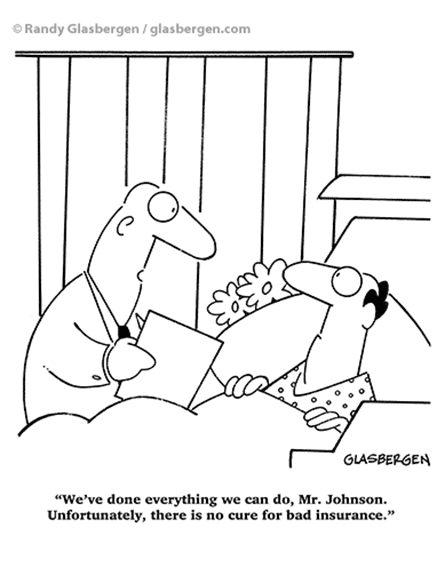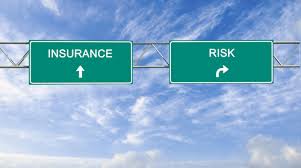
The New Meaning of Retirement
January 14, 2016
Commissions – The Dirty Truth
March 14, 2016Do I really need life and disability insurance? Before you can answer this question you need to provide some honest answers to a number of questions. But first, let’s set a foundation for considering these questions.
Human Capital v. Financial Capital
When we start out in life on our own, taking over responsibility for ourselves from our parents, we typically have a lot of human capital and very little financial capital. Over our working lives we look to monetise our human capital through paid work and when we cease work we look to live off the financial capital we have accumulated along the way.
The role of life and disability insurance is to bridge the gap between your existing financial capital and the amount of financial capital you need to sustain your desired lifestyle in the absence of your ability to monetise human capital.
Basically, if you can’t work and trade your time and skills for money, how much financial capital do you need to pay not only the short term bills, but possibly the bills for what would have been the rest of your life? This is the first question that needs to be answered and my experience is the amounts will surprise you.
Key Triggers for Insurance
It is important to recognise that as you enter relationships, purchase homes, take out home loans and start or expand a family your personal and financial obligations change and typically increase your expenses. As your expenses and financial obligations increase the gap between your existing financial assets and those you need can grow.
In Australia we have an interesting culture of widespread acceptance of the need for insurance with regard to our home, contents and motor vehicles, but an almost as widespread view you don’t need any more life and disability insurance than what someone else might have established for you (e.g. via employer super fund), without them even understanding who you are. I suspect this stems from the poor view many have of the life insurance sales industry, which has often served the salesman better than the person insured.
But it would be a big mistake to not give the matter greater consideration, and importantly consideration based on your unique circumstances. The risk sharing philosophy is still fundamentally at the heart of insurance, just as it was when conceived hundreds of years ago.
How much Insurance do I need?
How much cover do you need? This varies depending on your planned expenses. Note “expenses”, not “income”. While the amount you can insure will be based on your income for Income Protection it is your spending, thus expenses, you are looking to protect. If you spend all your income the amounts will be the same, but if you save a portion of your income you might not need to insure this portion (if expenses are not expected to increase).
There are some rules of thumb for Life Insurance and Total and Permanent Disablement (TPD) insurance that typically range from 12 to 20 times income (feel free to replace with expenses), depending on interest rates at the time, plus the amount of your debts. In the current environment of large home loans the debt component can be large on its own.
For Income Protection the standard has been 75% of income paid through to age 60 or 65 for many years, but more recently policies have become available that pay greater amounts and possibly for longer (e.g. age 70), with Income Protection insurance reducing the need for TPD. You are also able to insure against traumatic illnesses or conditions (e.g. cancer, heart attack or stroke, paralysis, etc.). In this case the focus is treatment expenses and income replacement where either Income Protection insurance is not in place or is not adequate. For those in business you can also insure business expenses, with your ongoing expenses the appropriate amount to insure.
Why the focus on percentages or multiples of income? It’s because people know what their income is better than their expenses (it’s true) and possibly from a sales perspective it results in a greater insurance amount sold. It’s also a simple approach that is easy to implement. While you can undertake a more sophisticated and precise calculation the reality is either approach is only a guess of what is needed. The only guarantee is that life will play out at least a little different to how you plan. Probably a lot different.
When calculating the amounts needed you deduct the amount of financial capital you already have access to, such as cash, shares, property and maybe super, and any existing life and disability insurance.
OK, you have calculated some rough numbers of the amounts of cover you need. If your financial capital is sufficient to offset your needs, congratulations. If your calculations suggest you need some insurance, but there are still some doubts in your mind, we’ve considered some common arguments below.
OK, I need insurance, but….
Cost
A common contributor to people’s reluctance to establish insurance is the view it is expensive. It can be, but for those in their 20’s, 30’s and 40’s (typically when you need it the most) you might be surprised by how inexpensive it is. A 30 year old female (non-smoker, clerical worker) is able to have $500,000 of Life cover for as little as approximately $220 per annum. For a 30 year old male (non-smoker, clerical worker) the same amount of cover is as little as approximately $250 per annum. You could be cheaper to insure than your house.
Waste of Money
A common belief is that insurance is a waste of money in that you pay out premiums each year and get nothing back. It is important to recognise this is actually what you want to happen, as it means you have enjoyed good health and haven’t needed to claim on your insurance. It can take a bit to get your head around this being a good outcome, but give it some thought. Remember, insurance is for when things go wrong.
It can wait till later
This is effectively rolling the dice with your future. You are betting nothing happens for a period of time and if it does you can sort out your insurance later.
The problem with this approach is that we don’t choose to have an accident or get ill. It just happens. Insurance is about protecting yourself from uncertainty. By doing nothing you are ignoring your inability to fully control this aspect of your life.
Secondly, insurance companies only want to insure healthy people. They make money by taking premiums from healthy people that don’t make claims.
If you have experienced health issues expect to have exclusions applied to any cover for the things you are likely to be most concerned about. Depending on the health issues, insurance companies may simply choose not to offer you cover at all and then you are on your own whether you like it or not. The time to establish insurance is when you have no material health issues. You will avoid exclusions, premium loadings or any other policy conditions. Once cover is in place the insurer can’t then impose exclusions or loadings, unless you failed to disclosed issues at time of application.
Family will look after me
As advisers to clients with adult children this is a frustrating area of their planning and one that can completely derail their own plans. What we ask is that you consider how fair it is for you to burden your family with not only the care burden of your illness or disability, but also the financial burden.
Your family will always give you the love and care you need, but they rarely have the financial resources to support you financially and maintain any resemblance of their own desired lifestyle.
I’m insured through my super
If you went through the earlier exercise of roughly calculating your need for insurance and found a shortfall you’ve already found the typical problem with automatic insurance via your super account. It is rarely enough.
It is also important to properly understand the cover provided. Group Income Protection via super is often limited in features. Trauma cover is not provided and TPD definitions are typically more difficult to satisfy. You might not have the cover you think you do.
Make an Informed and Considered decision
At the end of the day decisions on insurance are yours to make. Just make sure they are informed and considered decisions.
Next Month
Next month we dish the dirt on adviser commissions and how much they add to the cost of life and disability insurance. You might be surprised. Don’t worry, there is something you can do about it.
Disclaimer
This advice is of a general nature only and may not be relevant to your particular circumstances. The circumstances of each person are different and you should seek advice from a financial planner who can consider if any strategies or products mentioned are right for you.

